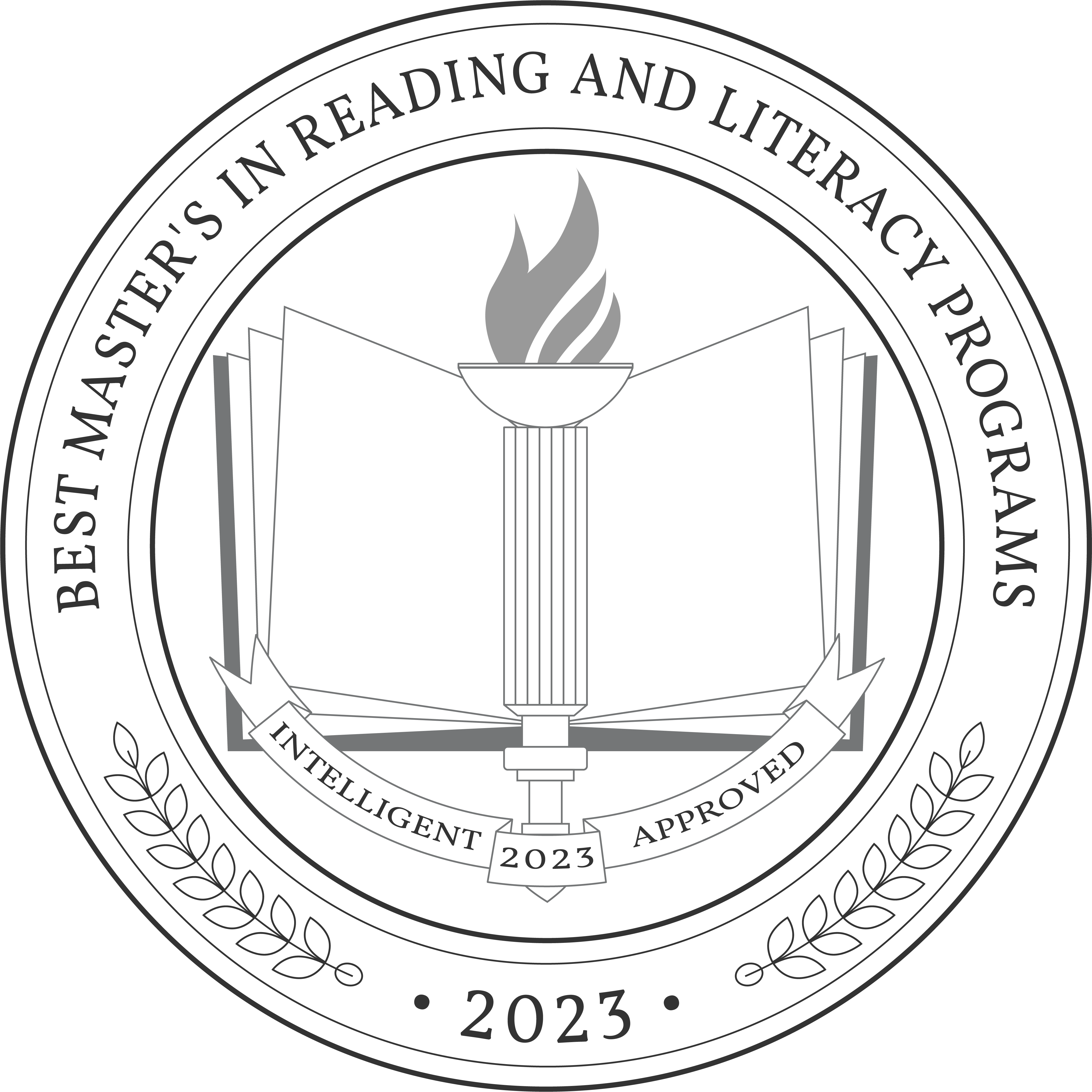Why This Matters
-
20% OF ADULTS HAVE TROUBLE READING
Per the Program for International Assessment of Adult Competencies, 21% of U.S. adults have poor literacy skills. That’s about 43 million people who could benefit from specialized reading instruction.
-
EDUCATION JOBS ARE EXPECTED TO GROW 5%
The field of education continues to grow. According to the Bureau of Labor Statistics, education, training, and library occupations will grow 5% through 2029.
-
MAKE $4,000 MORE PER YEAR AS A LITERACY TEACHER
Adult literacy teachers earn a median salary of $54,350. That’s over $4,000 more than the median education, training, and library salary of $50,790.
Our Research
We researched many master’s in reading and literacy degrees, including Master of Science (MS), Master of Arts (MA), and Master of Education (MEd) degrees. These programs are offered on campuses, online, and through hybrid models, ensuring accessibility for students in different situations.
To maintain the integrity of our list, only accredited programs are included. All programs are regionally accredited, and many are also accredited by the Council for the Accreditation of Educational Programs (CAEP).
We evaluated each program on the basis of flexibility, faculty, course strength, cost, and reputation. Then we calculated the Intelligent Score for each program on a scale from 0 to 100. For a more extensive explanation, check out Our Ranking Methodology.
- 67 hours to write this article
- 157 universities and colleges we assessed
- 267 education programs we compared
The Top 50 Master’s in Reading And Literacy Degree Programs

Discover More Options
What You Should Know About This Degree
Public teachers in the United States must have a state-issued teaching certification or license. All states require at least a bachelor’s degree for certification, and some require teachers to obtain a master’s within a certain period after they get their first job.
Teaching in public schools isn’t the only way to use this degree for a career. You can also work through nonprofits and government organizations that serve populations that have poor literacy, and some graduates work overseas.
If you do intend to teach in the United States, some states specifically require a degree from a CAEP-accredited school. Check with your state to see whether this specific accreditation is necessary.
To serve students with different goals, programs sometimes have different admissions requirements. Some programs accept any bachelor’s degree, while others specifically want a bachelor’s in an education-related subject. At some schools, a state teaching certification is required before enrolling. Make sure you meet all of a program’s requirements prior to applying.
Online programs can usually be completed remotely, but they often have an in-person practicum. Check the in-person requirements, and be sure that your schedule will accommodate them.
What’s Next?
Consider these questions as you research master’s in reading and literacy programs:
- What licensing or certifications are required? You’ll have to obtain a state-issued teaching certification or license before you can teach in public schools. Exact requirements vary, but this usually involves getting a degree (possibly a bachelor’s), passing an exam, and paying a fee.
- How long does it take to complete this online degree? These programs tend to require between 30 and 36 credits, which may take one to two years to complete if you enroll full-time. Going part-time will extend the time frame, and a few programs have additional credit requirements that also extend a program’s duration.
When you’ve decided on a potential school, find out what the application process is like. Check the program’s web page or contact the program to learn about required materials and deadlines.
Also think about how you’ll pay for your degree. Check with programs to learn about financial aid and scholarships. If you’re working, ask your employer whether it offers tuition reimbursement.